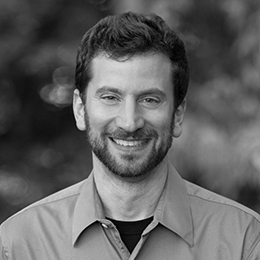No More Green Guilt
Every investment prospectus warns that “past performance is no guarantee of future results.” But suppose that an investment professional’s record contains nothing but losses, of failed prediction after failed prediction. Who would still entrust that investor with his money?
Yet, in public policy there is one group with a dismal track record that Americans never seem to tire of supporting. We invest heavily in its spurious predictions, suffer devastating losses, and react by investing even more, never seeming to learn from the experience. The group I’m talking about is the environmentalist movement.
Consider their track record — like the dire warnings of catastrophic over-population. Our unchecked consumption, we were told, was depleting the earth’s resources and would wipe humanity out in a massive population crash. Paul Ehrlich’s 1968 bestseller, The Population Bomb, forecasted hundreds of millions of deaths per year throughout the 1970s, to be averted, he insisted, only by mass population control “by compulsion if voluntary methods fail.”
But instead of global-scale famine and death, the 1970s witnessed an agricultural revolution. Despite a near-doubling of world population, food production continues to grow as technological innovation creates more and more food on each acre of farmland. The U.S., which has seen its population grow from 200 to 300 million, is more concerned about rampant obesity than a shortage of food.
The Alar scare in 1989 is another great example. The NRDC, an environmentalist lobby group, engineered media frenzy over the baseless assertion that Alar, an apple ripening agent, posed a cancer threat. The ensuing panic cost the apple industry over $200 million dollars, and Alar was pulled from the market even though it was a perfectly safe and value-adding product.
Or consider the campaign against the insecticide DDT, beginning with Rachel Carson’s 1962 bookSilent Spring. The world had been on the brink of eradicating malaria using DDT — but for Carson and her followers, controlling disease-carrying mosquitoes was an arrogant act of “tampering” with nature. Carson issued dire warnings that nature was “capable of striking back in unexpected ways” unless people showed more “humility before [its] vast forces.” She asserted, baselessly, that among other things DDT would cause a cancer epidemic. Her book led to such a public outcry that, despite its life-saving benefits and mountains of scientific evidence supporting its continued use, DDT was banned in the United States in 1972. Thanks to environmentalist opposition, DDT was almost completely phased out worldwide. And while there is still zero evidence of a DDT cancer risk, the resurgence of malaria needlessly kills over a million people a year.
Time and time again, the supposedly scientific claims of environmentalists have proven to be pseudo-scientific nonsense, and the Ehrlichs and Carsons of the world have proven to be the Bernard Madoffs of science. Yet Americans have ignored the evidence and have instead invested in their claims — accepting the blame for unproven disasters and backing coercive, harmful “solutions.”
Today, of course, the Green doomsday prediction is for catastrophic global warming to destroy the planet — something that environmentalists have pushed since at least the early 1970s, when they were also worried about a possible global cooling shifting the planet into a new ice age.
But in this instance, just as with Alar, DDT, and the population explosion, the science is weak and the “solutions” drastic. We are told that global warming is occurring at an accelerating rate, yet global temperatures have been flat for the last decade. We are told that global warming is causing more frequent and intense hurricanes, yet the data doesn’t support such a claim. We are warned of a potentially catastrophic sea level rise of 20 feet over the next century, but that requires significant melting of the land-based ice in Antarctica and Greenland. Greenland has retained its ice sheet for over 100,000 years despite wide-ranging temperatures and Antarctica has been cooling moderately for the last half-century.
Through these distortions of science we are again being harangued to support coercive policies. We are told that our energy consumption is destroying the planet and that we must drastically reduce our carbon emissions immediately. Never mind that energy use is an indispensable component of everything we do, that 85 percent of the world’s energy is carbon-based, or that there are no realistic, abundant alternatives available any time soon, and that billions of people are suffering today from lack of energy.
Despite all of that, Americans seem to once again be moving closer to buying the Green investment pitch and backing destructive Green policies. Why don’t we learn from past experience? Do you think a former Madoff investor would hand over money to him again?
It’s not that we’re too stupid to learn, it’s that we are holding onto a premise that distorts our understanding of reality. Americans are the most successful individuals in history — even in spite of this economic downturn — in terms of material wealth and the quality of life and happiness it brings. We are heirs to the scientific and industrial revolutions, which have increased life expectancy from 30 years to 80 and improved human life in countless, extraordinary ways. Through our ingenuity and productive effort, we have achieved an unprecedented prosperity by reshaping nature to serve our needs. Yet we have always regarded this productivity and prosperity with a certain degree of moral suspicion. The Judeo-Christian ethic of guilt and self-sacrifice leads us to doubt the propriety of our success and makes us susceptible to claims that we will ultimately face punishment for our selfishness — that our prosperity is sinful and can lead only to an apocalyptic judgment day.
Environmentalism preys on our moral unease and fishes around for doomsday scenarios. If our ever-increasing population or life-enhancing chemicals have not brought about the apocalypse, then it must be our use of fossil fuels that will. Despite the colossal failures of past Green predictions, we buy into the latest doomsday scare because, on some level, we have accepted an undeserved guilt. We lack the moral self-assertiveness to regard our own success as virtuous; we think we deserve punishment.
It is time to stop apologizing for prosperity. We must reject the unwarranted fears spread by Green ideology by rejecting unearned guilt. Instead of meekly accepting condemnation for our capacity to live, we should proudly embrace our unparalleled ability to alter nature for our own benefit as the highest of virtues.
It’s time to recapture our Founding Fathers’ admiration for the virtue of each individual’s pursuit of his own happiness.



